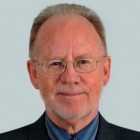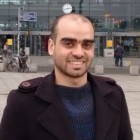Special Focus Session ACC79
Delivering Tech-enabled Learning Opportunities to Displaced People: Near Home, On the Move, and Within Europe
Date Friday, Dec 8 Time – Room: Lincke
Almost 1% of the world population (65m) are either refugees or internally displaced. UNHCR estimates that fewer than 50% of displaced children attend at least some primary school, 20% attend some secondary school, and only 1% attends higher education. Educating these mobile and very disadvantaged populations is extremely challenging. In this interactive and participative World Café session we will look at EdTech solutions that can contribute to providing education to serve three broad groups: those still in their country, or in a nearby country; those ‘on the move’, or seeking education opportunities elsewhere (scholarships); and those already in Europe. Whilst the focus will be on higher education, other levels will be addressed, particularly in the first two groups.
Moderators
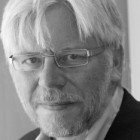
David Banes
Director, Consultant working with The Qatar Foundation International for “Build Back Better”, UK
Director of David Banes Access and Inclusion Services and formerly CEO, at the Qatar Assistive Technology and Accessibility Center, David has developed services ensuring the digital inclusion of disabled people. He works across Middle East and Europe to address how access is maintained during periods of technical and social change, seeking to build capacity, linking awareness, policy, technology development and the need for training.
With a background in special needs education and supporting digital inclusion in Europe, he supports emerging access ecosystems promoting cooperation between states, supports development of accesisble technology solutions and content.
Recent work includes a framework for contextualisation of access technology, transference of knowledge across communities and a policy framework to address the rights of people with a disability. His current activity includes educational support for refugees and the disruptive innovation upon the access industry.
Links
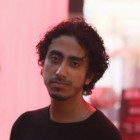
Karam Alhamad
Research Specialist (Consultant), Syrian Human Rights Activist | Independent Advocacy and Policy Consultant, Syria
Karam Alhamad is a specialized researcher, analyst, policy advocate, and human rights activist. Native to Syria, Alhamed has extensive knowledge and firsthand experience with development and governance initiatives inside and outside Syria. Since 2015, he has worked in projects with media, research and development supported by entities like USAID/OTI and Harvard University. Because of his previous work in data collection, journalism, and program development, Alhamad provides an in-depth and composite knowledge of Syria, one of the most complicated and heightened crises of our time. His voice provides a sophisticated look into the complicity of Syria, and he has developed a wide-ranging network of activists, community organizations, and local council members on the ground from which he draws information. Alhamad has faced many barriers to education faced by Syrian communities including; inability to document previous education, direct threats of violence and imprisonment.
Links

Jacqueline Strecker
Learn Lab Manager, United Nations High Commissioner for Refugees (UNHCR), Switzerland
Jacqueline Strecker has worked with UNHCR since 2012. During this tenure she has managed
UNHCR's educational innovation portfolio, as an Education Technology specialist and as the Manager of the Learn Lab, a joint venture between UNHCR's Education unit and Innovation Service. Prior to joining UNHCR, Strecker was an independent Education and Evaluation consultant, and previously worked with the Canadian Government. Ms. Strecker has an extensive background working as an advisor on the integration of technology into refugee contexts, providing technical and strategic support to the implementation of technologies into all aspects of learning, from a primary to tertiary education. Her practical knowledge of refugee camps is also complemented by a strong theoretical background in design and educational technology.
Links
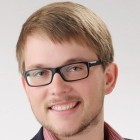
Florian Rampelt
Director of Education, Kiron Open Higher Education, Germany
Florian Rampelt is Director of Education at Kiron Open Higher Education in Germany. After graduating in political science and education sciences, he was a research assistant in teacher education at the University of Passau. At Kiron, he works with a dedicated team on Kiron's curriculum & tutorial development, quality assurance in digital learning environments, academic partnerships and successful transfers of Kiron students to higher education institutions. He also leads and coordinates several projects with governmental and non-governmental sponsors. As a researcher he contributes to research and policy work on access to higher education, the social dimension of education, lifelong learning, the recognition of prior learning and digital solutions in higher education with a focus on higher education for refugees and the European Higher Education Area. Florian also is involved in the evaluation and accreditation of study programs in the European Higher Education Area.
